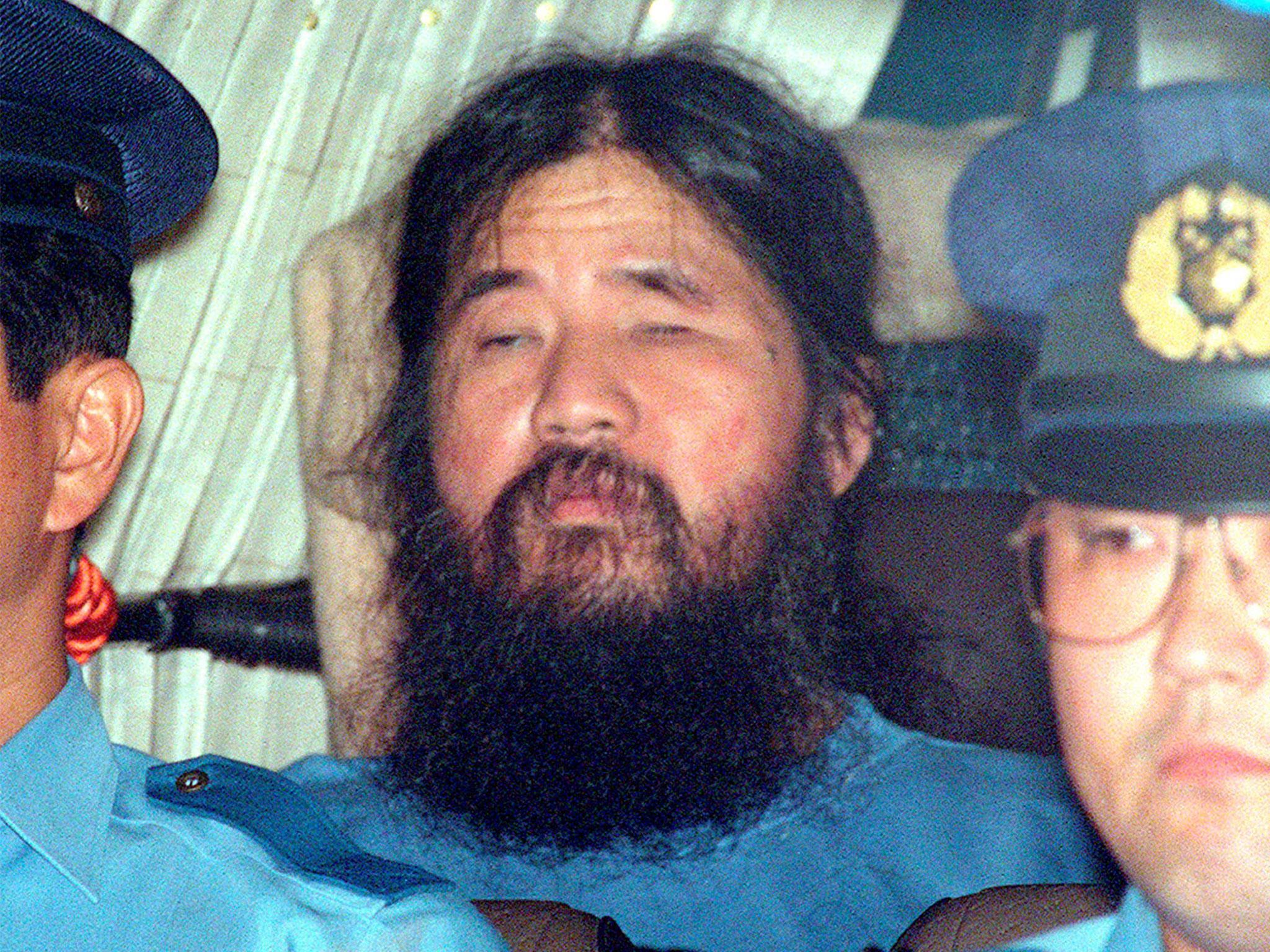Potassium cyanide sent to Japanese newspapers, food and drug companies under names of ‘doomsday cult’ leaders
Parcels containing ransom notes threatening to release deadly chemical into drug supply delivered in several major cities

Your support helps us to tell the story
From reproductive rights to climate change to Big Tech, The Independent is on the ground when the story is developing. Whether it's investigating the financials of Elon Musk's pro-Trump PAC or producing our latest documentary, 'The A Word', which shines a light on the American women fighting for reproductive rights, we know how important it is to parse out the facts from the messaging.
At such a critical moment in US history, we need reporters on the ground. Your donation allows us to keep sending journalists to speak to both sides of the story.
The Independent is trusted by Americans across the entire political spectrum. And unlike many other quality news outlets, we choose not to lock Americans out of our reporting and analysis with paywalls. We believe quality journalism should be available to everyone, paid for by those who can afford it.
Your support makes all the difference.Envelopes containing deadly potassium cyanide bearing the names of executed members of a notorious death cult have been sent to more than a dozen Japanese companies.
The packages, filled with white powder and threatening letters, targeted pharmaceutical and food companies as well as the headquarters of a newspaper across the cities of Tokyo, Osaka and Sapporo.
The letters were likely posted in Tokyo and listed their senders as executed members of doomsday cult Aum Shinrikyo, police told local media.
Asahi Shimbun, the newspaper that received one of the packages at its Tokyo office, said the letter threatened to spread the toxic substance as fake medicine unless a ransom was paid in cryptocurrency.
“Drugs laced with potassium cyanide will be distributed. Send bitcoins worth 35 million [South Korean] won (£23,800) by 22 February.”
Investigators in Tokyo believe the perpetrator is likely the same individual who sent similar packages to several pharmaceutical companies and the Mainichi Shimbun newspaper last week.
Police are also looking into whether the latest parcels are linked to a series of threatening letters posted to Japanese corporations last year.
Aum Shinrikyo was a death cult formed by mystic Shoko Asahara, which orchestrated the 1995 sarin gas attack on the Tokyo subway that killed 12 people and seriously injured more than 50 others.
The group, which was designated a terror organisation by a number of countries, has since split into two factions, with one, Aleph, still monitored by the government.
During 2018, 13 Aum Shinrikyo members, including Asahara, were executed by Japan over their roles in the subway attack more than two decades prior.
However, the decision to carry out the death penalty has seen backlash from those sympathetic to the group.
One man, Kazuhiro Kusakabe, drove a car down a crowded Toyko street in the early hours of New Year’s Day, injuring nine people, in what he claimed was a direct act of retaliation over the executions.
Join our commenting forum
Join thought-provoking conversations, follow other Independent readers and see their replies
Comments